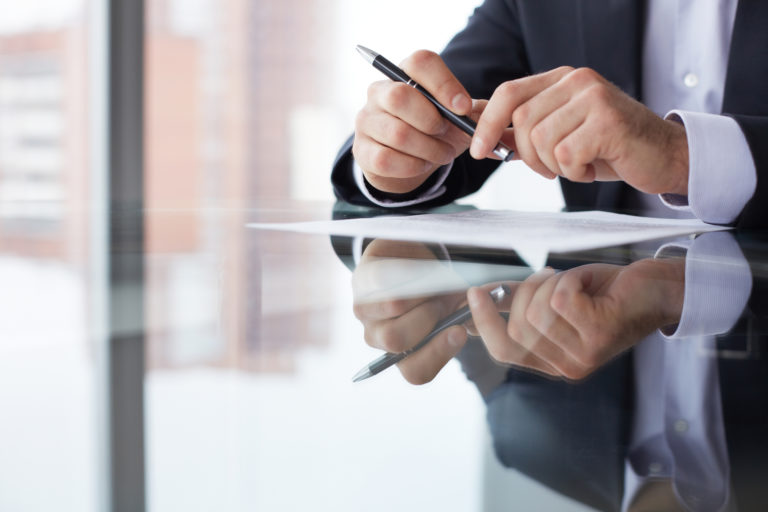Frequently Asked Questions by Expats
When it comes to financially making the most of your time overseas, learning about Australian expat tax and financial advice topics is important
Whether you are just about to move overseas, living the expat life, or about to return to Australia, there are always a lot of questions.
This is why we have setup the Australian Expat Frequently Asked Question section.
Here we outline some of the most commonly asked questions about obtaining Australian expat tax and financial advice.
If the answers below doesn’t cover your question then please head over to the contact us page to submit your question.

This is a common question and it will depend on two topics –
- your residency tax status; and
- the source of the income.
If you are classified as a resident for tax purposes then even if you live and earn an income overseas you may need to pay tax on this income, even if you have already paid tax on it overseas. Learn more about Double Taxation Agreements.
If you are classified as a non-resident for tax purposes then generally speaking you are not required to pay income tax on any income whilst working overseas.
If the source of your income is in Australia then the type of income you have earned (e.g. from employment, investment etc) will dictate whether or not you are required to pay tax to the ATO.
As everyone’s circumstances are different we recommend you obtain professional advice to determine what is applicable to you.
The type of superannuation that you hold back in Australia will determine whether or not you can contribute to your super fund.
Excluding Self Managed Super Funds (learn more about contributing to a SMSF as a Expat) then generally speaking you can contribute to a Australian superannuation account however you will need to check with your provider about whether their internal rules allow it.
Australian expats may also be eligible to claim personal super contributions as a tax deduction if they are considered an eligible person as defined in s290-160 of ITAA97 and make a contribution into their superannuation account as a concessional contribution.
A non-resident Australian expat with Australian-sourced income such as rental property income may find it beneficial to claim a tax deduction on personal super contributions.
If an Australian expat satisfies a condition of release, they can commence a super pension and the tax treatment of the income payments will depend on whether or not they are a resident of a country that has a Double Tax Agreement (DTA) with Australia.
DTAs attempt to prevent double taxation by allocating taxing rights over income classes covered under the agreement. If both the country of residence and Australia (the source country) tax an amount of income, the DTA requires the country of residence to grant a credit against its tax for the tax paid in Australia.
If a DTA does not apply, then the pension income is included as assessable income in Australia if the member is under the age of 60 or comes from an untaxed source. The member may also be entitled to the 15% tax offset (or 10% tax offset for income payments from an untaxed source).
If there is a DTA, then the pension income will generally only be taxable in the country of residence and no PAYG tax is withheld in Australia.
There is a difference in the DTA agreement with New Zealand whereby pensions paid from Australia to a tax resident of New Zealand who is over age 60 will have the tax-free status of the pension recognised and no tax will be levied in New Zealand. This is the only country to state that if the pension is exempt in the home country it will be exempt in the other.
Whilst there are many professionals in Australia who provide tax and financial advice when it comes to the specialised field of advice for Australian expats one size does not fit all.
The reason being that not only is the tax legislation in Australia changing rapidly but so too does the regulations overseas.
When providing Australian expat tax and financial advice not only do you have to consider the changing landscape in Australia but also how that works with the country that you are resident in.
We have seen on many occasions where a tax or financial adviser in Australia has provided a recommendation with no thought as to how that will affect you in the country that you are domiciled in.
Cross border financial planning takes into account both aspects – the country that you are a citizen of as well as the country that you are resident in.
There are a number of ways you can become a client of Atlas Wealth Management.
In order to correctly understand your financial position, and the requirements that you have, we recommend a initial meeting to discuss your personal circumstances.
You can either:
- Contact either of our offices in Australia or Dubai to organise a meeting in person in one of our offices; or
- Send through a enquiry to organise a meeting to be conducted over Skype, Zoom or any other digital video platform.
With clients in over 28 countries we are experienced in providing Australian expat tax and financial advice over many different mediums.
Distance is no impediment to receiving specialised expat financial advice which is customised to your citizenship and country of domicile.
Australian licensed advisers are regulated and monitored by the Australian Securities & Investments Commission (ASIC) unlike many offshore advisers who operate sometimes with little to no regulations.
Australian advisers not only understand your needs as an Australian expatriate but understand the relevant regulatory issues that are faced by Australian expats.
Quite often offshore advisory firms manage clients of many different nationalities, so their advice is directed at expats in general, not how it affects you as an Australian expatriate in particular.
Due to the regulations, our advisers must undertake continuing education that ensures their professional knowledge and skills are always at the highest standing.
We have many clients who come back to Australia to either continue working or to retire.
They still utilise the services of Atlas Wealth Management because they still require someone to provide them with financial advice.
As we have provided financial advice over a number of years, we are usually in the best position to provide ongoing advice because no one understands your position better than we do.
Atlas Wealth Management only works with Australia’s leading financial services companies. These companies pride themselves on maintaining their integrity and are subject to some of the world’s toughest financial regulations.
By utilising our services, you will always have the peace of mind knowing that your account is being operated under the jurisdiction of the Australian Securities & Investment Commission (ASIC).

Our fees
When providing a specialised service like Australian expat tax and financial advice we like to ensure that we are open and transparent with respect to any fees that maybe applicable.
We believe that the services we offer are valuable and the remuneration we receive is a fair reward for our expertise and skills.
We are committed to being open about any benefits or payments we receive and the costs you will incur for using our services.
The cost of providing a financial product or service to you will depend on the nature and complexity of the advice, financial product and/or service provided.
There maybe a small initial charge for the call depending on the nature of your enquiry. If there is a charge this will be confirmed with you in writing beforehand.
The purpose of the discovery call is to understand your financial situation and to determine whether Atlas Wealth Management can be of assistance.
Please note that should further calls be required then we may need to charge for our time however we will confirm this with you in writing beforehand.
Atlas Wealth Management look to identify and prevent or manage any conflicts of interest between ourselves as the adviser and you as the client.
An example of how we manage this is that all of our financial planners are paid a salary and the advice provided to you does not influence what they earn as income on a monthly basis.
Atlas Wealth Management abides by the Code of Ethics standards that were introduced in Australia on the 1st of January 2020.
As part of this framework Atlas Wealth Management must always act to realise and promote the values of:
- Trustworthiness
- Competence
- Honesty
- Fairness
- Diligence
NO! We are strongly against remunerating our financial planners by way of a commission.
Atlas Wealth Management is a “fee-only” advisory firm and the only compensation we receive is from our clients.
We receive no commissions on any product we recommend and the only reason we may recommend a particular product is because it is in your best interests, not ours.
The Australian expats that we work with gain piece of mind knowing that the Atlas Wealth Management financial planner they are working with is paid a salary which is not dictated by recommended products or sales targets.
Our fee-only structure provides transparency and supports our sole objective – to help each client achieve their individual goals.
When an Australian expat engages Atlas Wealth Management to obtain financial advice there are two stages in the process with the respective fees applying to both stages.
The first stage is the Planning Phase.
By law we must prepare for you what’s called a Statement of Advice (Financial plan in layman’s terms).
Essentially this is a 30 to 70 page report that is a review of your current financial circumstances, identifying your goals and objectives and our strategy to helps you achieve those goals.
The second phase is the Ongoing Advice Phase.
Once a client has received their Statement of Advice and has approved the strategy they then may engage Atlas Wealth Management to execute the recommendations and provide ongoing advice.
When you request that Atlas Wealth Management provide you with a Statement of Advice your financial planner will provide you with a quote to prepare this for you.
The cost to prepare a Statement of Advice document ranges from USD$2,100 up to USD$10,500 and this fee will vary according to the complexity and scope of the financial advice that is being requested.
As an example, at the low end of the price range might be a simple superannuation review and consolidation or investment portfolio recommendation whereas at the top end of the range this may incorporate a review of superannuation, investment accounts and a property portfolio with the view to optimising cashflows and gearing levels to optimise tax residency.
The Statement of Advice preparation fee is a one off charge and it is calculated on a cost recovery basis based on the time that it will take us to prepare your financial plan for you.
It is important to note that by requesting a Statement of Advice you are not committing to an ongoing advice package and you are only agreeing to the one time Statement of Advice preparation fee.
We are unlike most financial planning firms in that not only are we specialists in the area of cross-border financial advice but our services are managed in house which means that we are accountable for all recommendations.
As well as providing you with research and recommendations regarding the latest legislative changes, and how that pertains to Australian expats, we also have our award winning portfolio management service which is powered by our in-house investment committee who is monitoring your portfolio daily.
Our ongoing advice fees are centered around our two core services to Australian expats and are very simple to understand.
- Financial Planning Fee – AUD$137.50 per advised person per month.
- Asset Management Fee – our award winning asset management service fee is a maximum of 1% and tiers down to 0.50% based on the size of the account.




